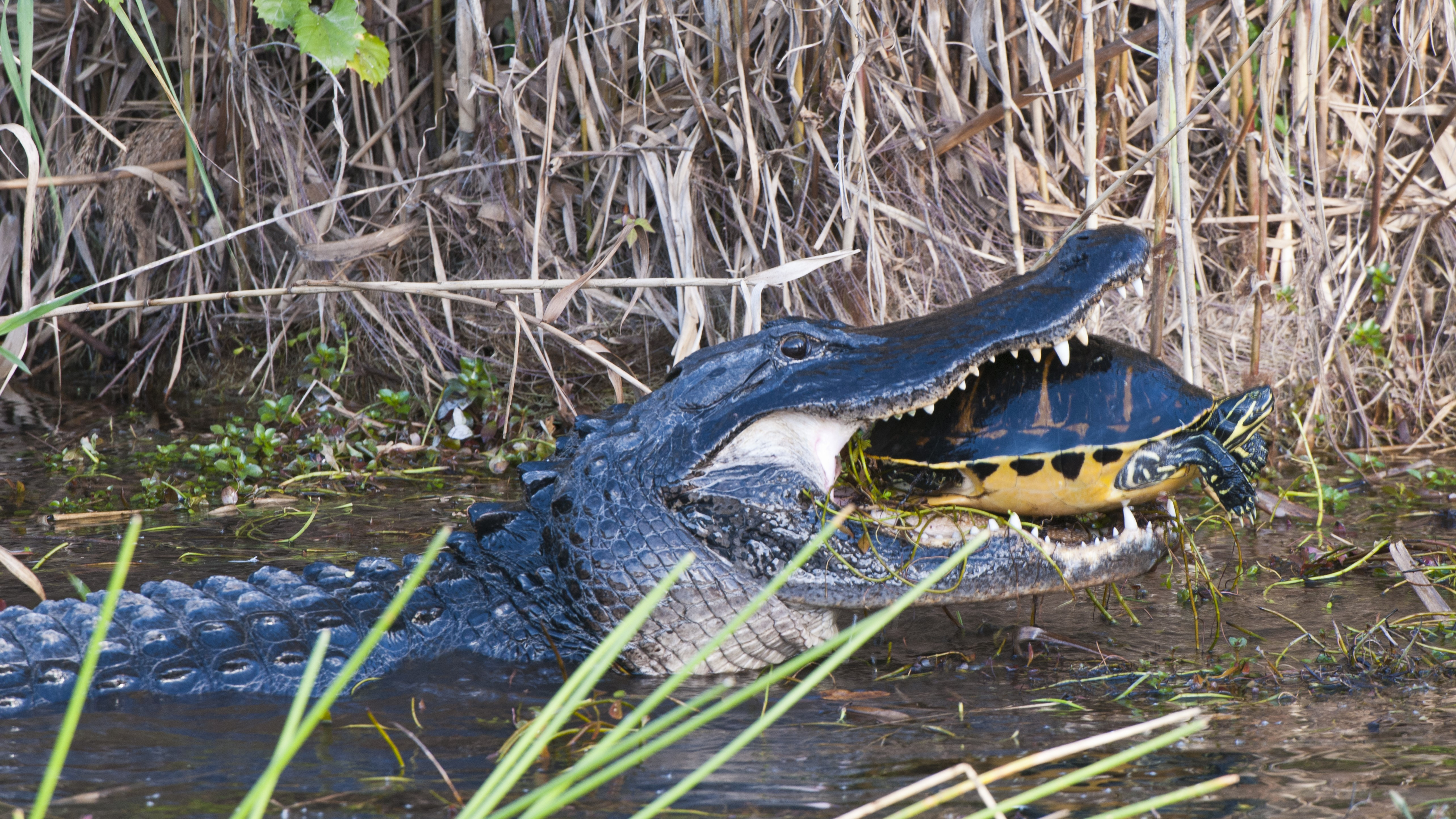
A group of tourists in the Everglades have been caught on camera throwing caution and common sense to the wind, and crowding around a large alligator eating a turtle to snap pictures. The Florida Everglades are home to over 200,000 alligators, so there's a good chance that you'll spot one on a hiking trip, but the National Park Service (NPS) warns visitors to "keep a safe and respectable distance of at least 15 feet" from the animals at all times to avoid the risk of injuries.
A photo of the incident, shared at the weekend via Instagram account TouronsOfNationalParks, shows that the group included a woman who had brought her young child for a closer view of the alligator, putting him and herself in danger.
Alligator and crocodile attacks are rare, but they do happen. Earlier this year, a man was bitten by a crocodile after falling out of a boat at a marina in the Everglades. As The Associated Press reported at the time, the man was trying to swim to shore with his boat when he was bitten, and suffered leg injuries that required medical attention.
Many Instagram users were shocked that a parent would put their child in such a risky situation.
"They are waaaayyyy too close," wrote one commenter. "Putting not just themselves in danger, but their children too. It is [one] thing to be a touron, but to [put] your child in danger like that is unbelievable."
Alligator safety
The National Park Service (NPS) explains that alligators are an important part of the ecosystem in the Everglades. Their nesting activities are important for creation of peat, several species of turtle live inside old or abandoned alligator nests, and flooded alligator holes make valuable reservoirs during droughts.
Despite their reputation as fierce predators, you're very unlikely to be attacked by one while exploring the Everglades. According to National Geographic, from 1948 to 2016, there were only 383 recorded incidents of 'gator bites serious enough to need medical attention.
Of those, 23 resulted in death, though some of those were a result of subsequent infections rather than damage inflicted by the animal. Most fatal incidents involved swimmers and snorkelers, who are in much closer proximity to alligators than hikers.
That said, it's always a good idea to keep your wits about you, and look out for signs of alligator activity like indentations in the mud alongside rivers and lakes, where the animals have rested or slid into the water. You might also hear alligators grunting and roaring, particularly during late spring.
In the unlikely event that an alligator charges you, your best option is to run away as fast as possible. Alligators can move quite quickly, but only for short periods, and they tend to zig-zag rather than running straight. For more advice, see our guide what to do if you see an alligator in Florida.







